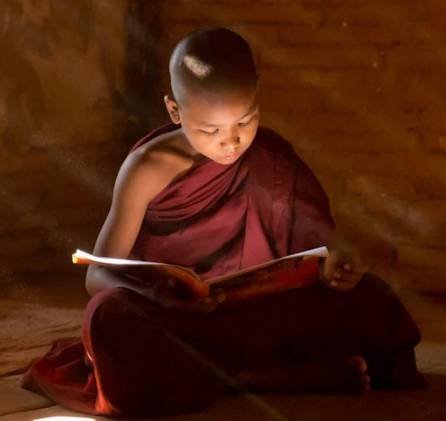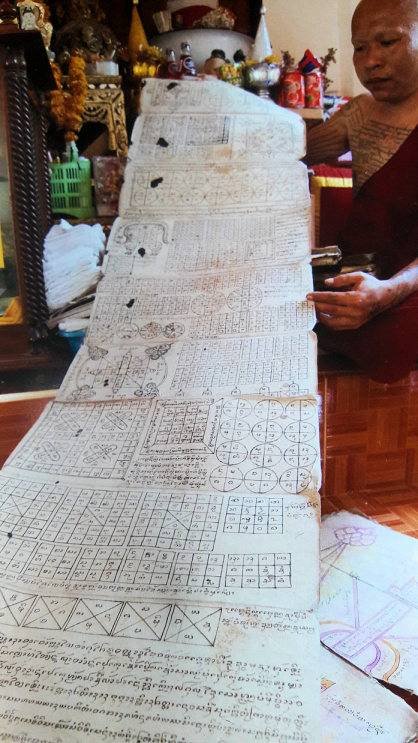Sak Yant Tattoo Rules
What are the Sak Yant Rules after getting a Sak Yant Tattoo?
Perhaps one of the misunderstood elements of receiving a Sak Yant is the set of Sak Yant Tattoo Rules that are associated with maintaining the power of the Tattoo. The confusion arises for 2 very simple reasons.
1) Each Sak Yant Tradition has their own Rules for Sak Yant Tattoos
2) Almost all Rules for Sak Yant cited on the internet come from misunderstanding of Wat Bang Phra (a training center for Monks)
Table of Contents
ToggleThe Common Sak Yant Tattoo Rules of Conduct
The generally accepted Sak Yant Rules by most Ajarns are the 5 major precepts of Buddhism.
In addition, each lineage of Sak Yant, and even individual Monks and Ajarns may add and expand on these rules.
Common Sak Yant Rules
The Buddhist Concepts and Sak Yant Rules of Conduct
Do not kill
Do not steal
Do not desire another persons lover or spouse or be unfaithful to your own
Do not lie
Do not get Intoxicated
Do Not speak ill of your Mother and Father

Additional Sak Yant Rules by Wat Bang Phra Lineage or Masters
Do not commit evil deeds.
Devotees of the same master are forbidden to fight or compete with each other
Do not drink alcohol or take drugs.
Do not make special claims of having protective powers because of your Yant or amulets.
Do not think that the power of the Yant will protect you if you intend to use those powers for bad deeds.
Try to keep the five precepts.
Explanation of the Sak Yant Rules
All of the common Sak Yant rules are self explanatory, and common to every religious and societal norm. They must be followed by everyone, tourists and Thai alike, however there can be some modifications within the rules
Do not Kill | Sak Yant Rule
Standard commandment of every religion and social norms of any society even without guidelines from a religious authority. If you are a Buddhist this means do not kill anything, including animals and insects. Otherwise it mainly refers to other humans and the killing of insects and animals is up to your own ethical code. A farmer for example will be required to kill livestock, but this does not prevent them from getting a Sak Yant.
Do not Steal | Sak Yant Rule
Again a standard commandment of every religion and society for normal functioning. You can not steal, no matter what the value or situation. Stealing is a quality of a bad person.
Do not desire another persons lover or spouse or be unfaithful to your own | Sak Yant Rule
When you are in a committed relationship you must remain faithful to your spouse. If both you and your spouse are in open relationships you must not lie or deceive them. So as long as your spouse knows and is OK with it you can engage in sexual activities with another. However this does not extend to the spouse of another even if you are single.
Do not Lie | Sak Yant Rule
Good people are honest people, You must not engage in deception which includes both lying outright, providing misinformation and deception from not correcting other people’s incorrect interpretation from you omitting details.
Do not get Intoxicated | Sak Yant Rule
You can still have a drink, engage in smoking and if you are in Thailand partake in some Magic Mushrooms. The intoxication refers to remaining within conscious control of your ability to make good decisions and actions. Do not get to the point where you are not in control.
Do not Speak Ill of your Mother and Father (or elders) | Sak Yant Rule
Thai culture has a level of respect for the parents and positions of authority (such as teachers, Army, Government workers) that is a little difficult to comprehend in western culture. Thailand due to it’s Buddhist influence places a great deal of importance on the social good over individual pursuits. The individual is not as important as the cohesion of the community.

Why do Sak Yant Tattoo’s Rules Exist?
The Sak Yant Tattoo is a spiritual and magical representation of a desire/intention or specific purpose that is magically charged by the Sak Yant Master at the time of creation. That magical charge bestowed into the tattoo is based on the power created by the Master from regular spiritual practices, purity of life and meditation.
Because the Sak Yant is designed as a spiritual aid in a persons life, it should not be done unless the person has a commitment to living a good life. The magical power embedded into the Sak Yant, relies on the quality of the persons thoughts, and actions to remained charged. The rules are designed to highlight some of the most important actions that will do this.
Like Christianity, and Buddhism, the Sak Yant tradition has many different schools of styles along with the lines of lineage from master to student. Each lineage of Sak Yant has a set of rules that the Monk or Ajarn tells the student (receiver of a Sak Yant Tattoo), that they themselves where taught by their Sak Yant Master.
Many of the rules that in the past, applied only to Monks and Thai people, have been reported and listed in Blog-posts, confusing people. Others have become distorted and translated into some odd and peculiar meanings over time. So let’s clear up some of the misunderstandings and get to the Sak Yant Rules of Conduct
The purpose of a Sak Yant is to provide a Magical Blessing with a intention that should generally have a compassionate nature. The Asian communities consider this magic to be powerful and once given in the blessing requires commitment on behalf of the student to be maintained (nothing comes for free after all). So to ensure that the power of the magic lasts, the person with the Sak Yant must lead a good life and be a good person, or else the power of the Yant will fade.
Generally the major precepts of Buddhism come into play here. These rules are pretty standard among almost all religions and by societies rules of leading a good and lawful life.
Wat Bang Phra’s Sak Yant Tattoo Rules of Conduct
Almost all the Sak Yant Rules of Conduct that are posted online in various travel blog posts come from a posted sign at Wat Bang Phra. It is highly doubtful that any Westerner receiving a Sak Yant was specifically given any of these rules, but they saw the sign and blogged about it.
Wat Bang Phra is the most famous icon of Sak Yant Tattoos, just outside of Bangkok. This Temple and Monastery is in addition to being a training center for Monks and Sak Yant Tattoos, is a school for young novice Monks. Monks highly respect their teachers and their lineage (you may see photos and statues of Monks around various Temples), and follow word for word what their Masters have taught them. This has lead to (over time and translations) some distortions in the Sak Yant Rules of Conduct which makes some of them sound odd. Following are the Sak Yant

Wat Bang Phra Sak Yant Rules
Do not eat Star fruit, Pumpkin, or any other ‘Gourd’ type Vegetable.
Do not be anybody’s Lover who is already married
Do not slander anybody’s Mother
Do not eat food from a Wedding, or Funeral banquet.
Do not eat left-Overs.
Do not duck under a washing Line, or an overhanging building.
Do not duck under a Banana Tree of the type Thaanii (classed as important to avoid).
Do not cross a single head bridge; Large or Small bridges are not Forbidden
Do not sit on a Ceramic Urn (Common in Thailand). Especially a Cracked, or Broken one.
Do not let a Woman Lie on top of you, or sit on top either.
Do not permit a Man to be brushed by the blouse or skirt of a Woman, or crossed in Front of; Especially during the Menstruation Period

Why do some Wat Bang Phra Sak Yant Tattoo Rules seem a little Odd?
If you where to read these rules in the light of knowing they are historically for novice Monks, some (but not all) start to make more sense. Not eating food from a Wedding or Funeral or leftovers, refers to Monks only being able to eat once a day before noon. For the general Thai population it means do not eat food from a Spirit House
Monks also have to avoid temptation and impurities. A washing line may have women’s under garments hanging from them, (as might a Banana tree in rural areas) and so to avoid the possibility menstruation contact – better to just avoid going under and go around.
Some of the rules are obvious in leading a good life, others I confess, I have no clue as to why they are there. Many people who write about the Rules will attempt to explain them – but these are usually inconsistent and vague. The Monks and Ajarns I have asked, tend to say something along the lines of ‘that’s what my master told me’. The Thai people and culture generally do not question authority … what is, is, and that’s it.
As a westerner, I can speculate, that with a Temple fill of young children running around and playing, Urns may have gotten broken, children may have fallen off small beams as they played and balanced walking across. Maybe like any school with kids, rules where created and a reward of a Sak Yant tattoo offered to well behaved students. Then as each student honored their teacher, these school rules got past down as well over time without questioning their value.
The bottom line is, as a westerner (or indeed as a Thai person) you do not have to take the rules you read online in internet posts as gospel. It is assumed when you get your Sak Yant that you are a Buddhist or at least follow the general guidelines of almost all religions. Sometimes the Monk or Ajarn will highlight these rules, sometimes they will not. Each has their own lineage and ways of doing things. The most important thing to remember is that the Sak Yant is sacred. In order to remain sacred it’s bearer should be a good person and lead a good life. This is essentially the purpose of the Sak Yant Rules of Conduct.
Want to Get a Sak Yant?
Sak Yant Chiang Mai is Thailand’s leading Sak Yant provider – Over 10 Independent Sak Yant Masters working in Hygienic and comfortable Samnaks
